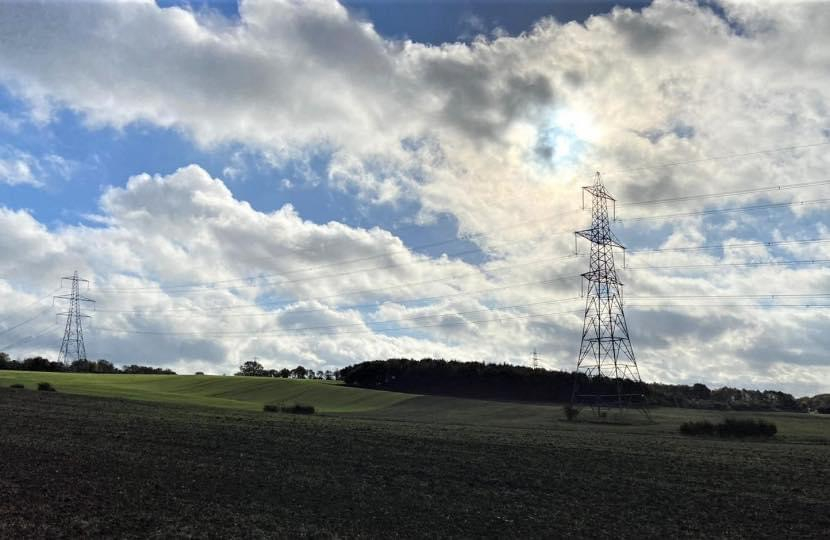
A review into possible alternatives to a new pylon development has received backing of a local MP, who says it has revealed an option that is “good for the Dedham Vale and South Suffolk”.
The East Anglia Network Study, published by the National Grid Electricity System Operator (ESO) earlies this month, outlined 10 alternative options for transmitting energy generated at offshore wind farms.
The assessment was requested following objections to National Grid’s plans for a power line from Norwich in Norfolk to Tilbury in Essex, which would include cabling through portions of the Dedham Vale.
Many objectors have suggested that a coordinated offshore grid should be pursued in order to reduce the impact on communities and the environment.
Following the ESO review’s publication, South Suffolk MP James Cartlidge voiced his support for the option of using offshore-type HVDC cables underground, as an alternative to the proposed pylon scheme.
He argued that the evidence showed that this option would avoid permanent damage to the countryside, and could potentially be even more cost effective than the onshore pylons.
“With traditional under-grounding being more expensive than pylons by some margin, like many campaigners, I had hoped for a fully offshore option,” said Mr Cartlidge.
“In fact, ESO have found that by using the offshore-type HVDC cables underground, they are able to propose an alternative to pylons that could be delivered at comparable or lower cost.
“I am incredibly grateful to ESO for their work and the professionalism and open mind with which they have approached this challenge.
“With an options at hand, backed by the most credible evidence, which means we can deliver our electricity transmission needs affordably and efficiently – yet without new pylons – we should seize this way forward.
“Finally, it is, of course, the case that no option is without impact or infrastructure.
“However, that is particularly the case with AC undergrounding, where pylon-borne power is under-grounded for part of its route, as would be the case with the pylon route being required to go through the Area of Natural Beauty and Dedham Vale.
“Instead, with a single underground DC network, there isn’t the need to have such wide trenches and there would be far less impact than partial undergrounding between pylons.
“This option is good for the Dedham Vale, and south Suffolk – it is affordable, and I believe it would be far less damaging to our countryside in the long term, supporting our rural way of life.”
Published in the Suffolk Free Press.


